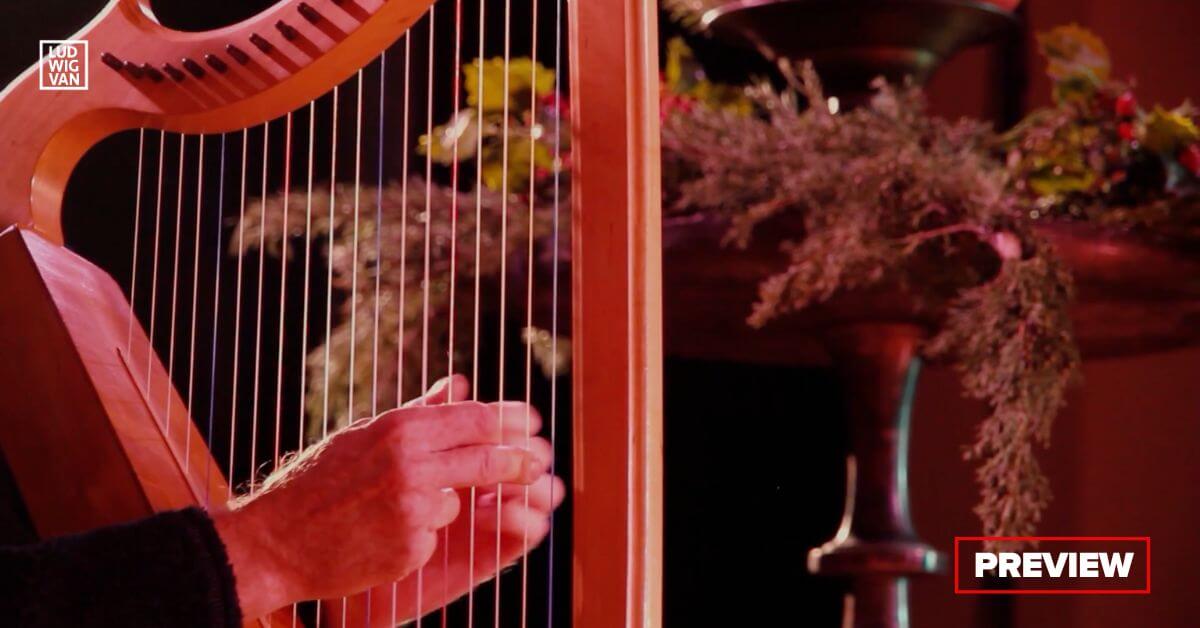
[ad_1]

“It will be actually nice to get everybody unplugged,” says Addie Smith, Senior Director (Engagement and Schooling) of The Toronto Consort. He’s speaking in regards to the expertise supplied by Medieval Christmas, a live performance that may fill Jeanne Lamon Corridor in Trinity-St. Paul’s Centre with candlelight and music on December 8 and 9.
The music of the Center Ages speaks to an period that moved at a special tempo, with completely different values; its magnificence, nevertheless, is common. The live performance, which incorporates projections that add to the environment together with flickering candles, was first developed in 2016.
“It’s a very incredible present,” Smith provides.
The music of the Center Ages
The Medieval period in Western music laid the foundations for the Renaissance and Baroque intervals that might comply with. Distinctions have been made between sacred and secular music, and lots of the compositions have been written for voice.
Musical notation programs have been being created and developed throughout this era, enabling the music to unfold from one space to a different. Polyphony (the mix of a number of notes and/or melodies) was additionally being developed throughout the Center Ages.
There’s a style of the music and efficiency made obtainable through Toronto Consort’s Early Music TV freed from cost [HERE]. They’re performing Laude novella sia cantata – Cortona, c. 1280.
The Laude novella sïa cantata comes from the Laudario di Cortana, found about 140 years in the past in Tuscany. The thirteenth century manuscript comprises is actually a group of laude, a kind of sacred music sung within the vernacular language.
It’s an instance of a lyric music carried out within the vernacular language, versus Latin, a development that had begun within the twelfth century. Laude would grow to be in style for hundreds of years. The poetry is subjective and private, not like many different music types of the period, and sometimes very emotional. Each composers and singers got here from all ranges of medieval society.
It’s grow to be strongly related to Christmas, and is represented in lots of languages, together with Italian, French, and English.
The Live performance
The live performance options vocalists and instrumentalists, together with:
- Alison Melville (flutes and recorders)
- Paul Jenkins (tenor, harp)
- Esteban La Rotta (plucked strings)
- Ben Grossman (percussion)
- Laura Pudwell (mezzo-soprano)
- Michele DeBoer (soprano)
- Cory Knight (tenor)
- Olivier Laquerre (bass)
Pre-show Lecture
A video lecture earlier than the live performance will add to your ,understanding of the period’s music. Western College’s Kate Helsen, Assistant Professor, Don Wright School of Music, is an skilled within the subject.
Previous to taking over the place at Western, Kate Helsen held a two-year post-doctoral fellowship from the Social Sciences and Humanities Analysis Council of Canada on the College of Toronto. There, she researched the transition between neumes and sq. notation within the twelfth and thirteenth centuries. She accomplished her doctoral diploma on the College of Regensburg in Germany, and he or she has revealed broadly in a variety of educational journals dedicated to early music.
Kate was a workforce member of the Musical Exchanges 1100 – 1650 undertaking on the Centro de Estudos de Sociologia e Estética Musical (CESEM) College of Lisbon from 2009 to 2013. Her present analysis explores using digital know-how, together with doc evaluation software program, within the subject of early music.
She can also be an expert singer, presently with the Tafelmusik Chamber Choir.
- Extra details about the performances on December 8 and 9, and tickets obtainable [HERE].
Are you seeking to promote an occasion? Have a information tip? Must know one of the best occasions taking place this weekend? Ship us a observe.
#LUDWIGVAN
Get the day by day arts information straight to your inbox.
Join the Ludwig Van Toronto e-Blast! — native classical music and opera information straight to your inbox HERE.
[ad_2]